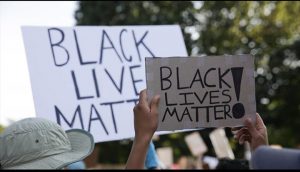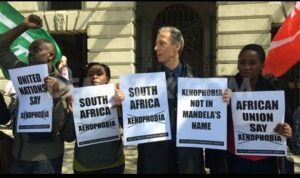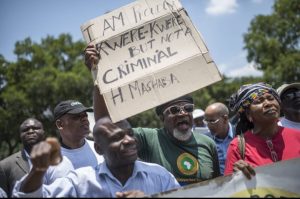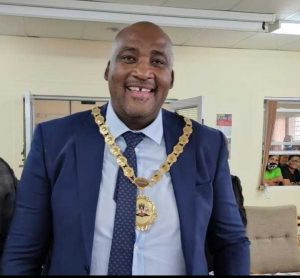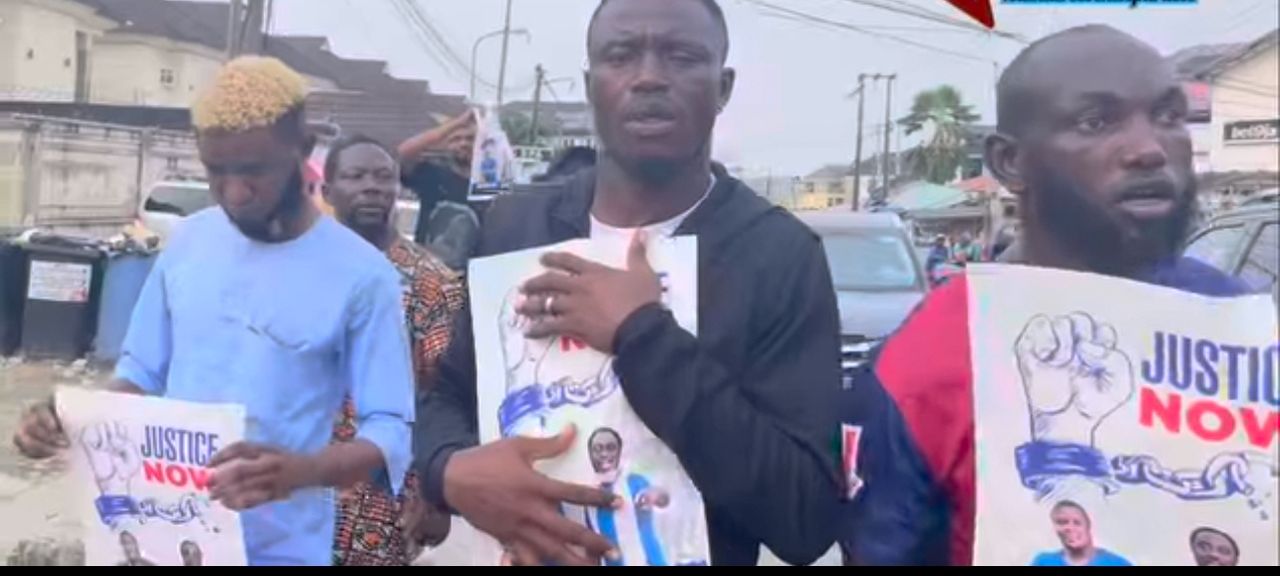society
From Freedom Fighter to Xenophobic Tyrant: How South Africa Betrays Africa”
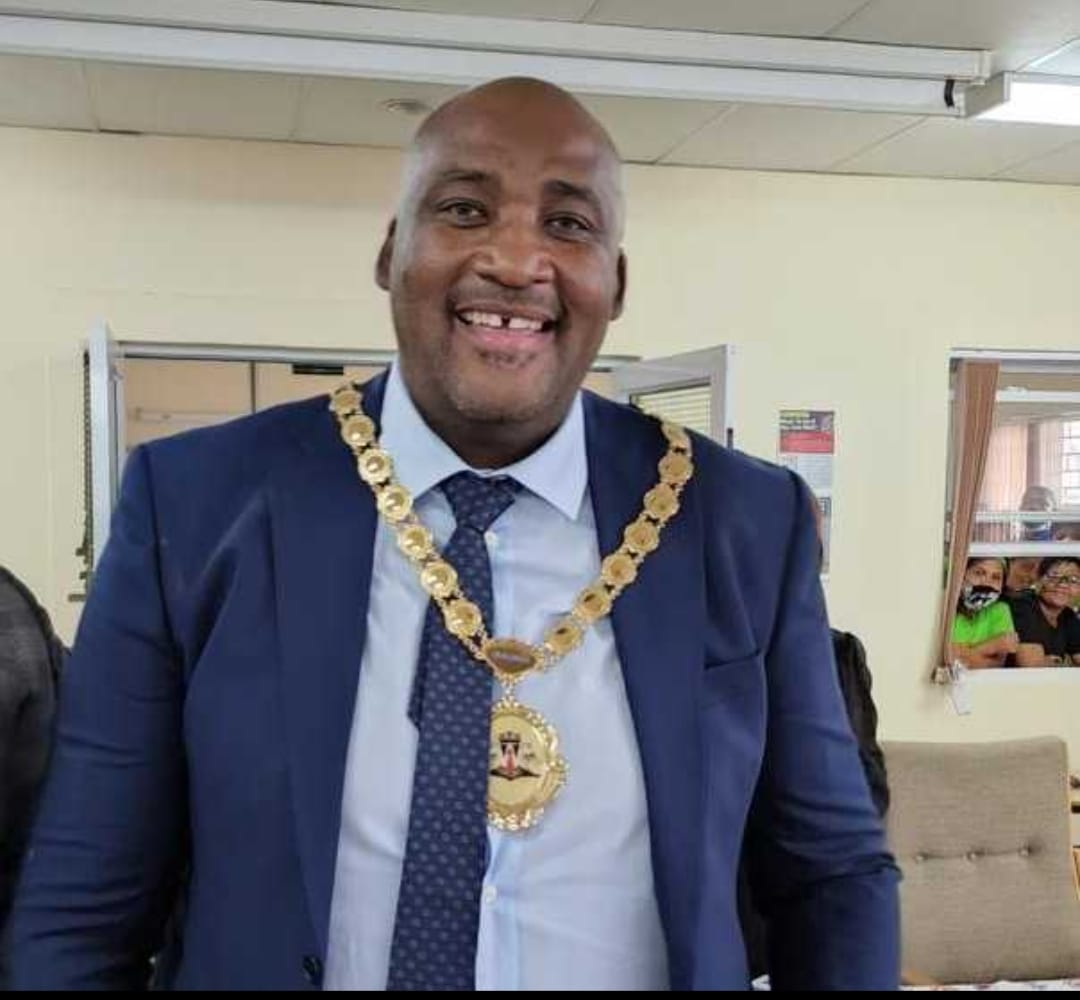
“From Freedom Fighter to Xenophobic Tyrant: How South Africa Betrays Africa”
By George Omagbemi Sylvester
In an age where Africa must rally around unity, economic collaboration, and cross-border development, it is both tragic and outrageous that a political leader in South Africa has emerged to champion a campaign that echoes the darkest ideologies of the past. Gayton McKenzie, the Mayor of Central Karoo and leader of the Patriotic Alliance, has become the face of xenophobic populism in South Africa. His “Abahambe” doctrine; which means “Let them leave” in Zulu meaning is not just a rallying cry; it is a ticking time bomb threatening the very fabric of African brotherhood.
By targeting African migrants, particularly Nigerians and Zimbabweans, McKenzie is doing more than playing politics. He is weaponizing fear, scapegoating economic migrants who, contrary to his claims, often create their own jobs, employ others, and contribute to the local economy. This is not a movement of patriotism. It is a movement of prejudice, one that resembles, in language and tone, the early stages of fascist regimes.
Dangerous Rhetoric, Dangerous Consequences
History offers sobering lessons. Leaders who have failed to deliver prosperity often manufacture enemies. Adolf Hitler, in the 1930s, blamed Germany’s woes on Jews and used propaganda to dehumanize them. We all know where that road led.
McKenzie’s playbook is eerily similar. Rather than confront South Africa’s systemic failures and rampant corruption, deteriorating infrastructure, and chronic unemployment, he blames African migrants. This redirection of public anger is a cynical political strategy. It is easier to inflame crowds than to fix roads, hospitals, or schools. But such strategies come with deadly consequences.
This is no longer just a political platform. It is incitement. His speeches have inspired violence: shops looted, homes burnt, and lives lost. These are not isolated incidents they are the direct results of a narrative that paints migrants as enemies, not neighbors.
African Migrants: Job Creators, Not Job Thieves
Contrary to McKenzie’s inflammatory claims, the overwhelming majority of African migrants in South Africa are self-employed. They run salons, corner shops, logistics companies, restaurants, and even tech startups. They work tirelessly, not because South Africa gave them jobs, but because they were forced by circumstances to create their own. They compete not for state resources, but for survival.
Studies by the Human Sciences Research Council and other institutions have repeatedly shown that immigrants are more likely to be entrepreneurs than locals; a fact also observed across Europe and the United States. In inner cities across Johannesburg and Cape Town, it is often foreign-owned businesses that provide services and employment in neglected areas.
So when McKenzie screams “Abahambe,” he is not just targeting undocumented migrants. He is threatening people who pay rent, taxes, school fees — and employ South Africans too.
Nigeria’s Historic Role: A Debt South Africa Must Honor
That Nigerians are a central target of this campaign is not only unjust; it is profoundly insulting. Nigeria was one of the fiercest opponents of apartheid. From 1960 to 1994, the country invested billions in today’s value, over $60 billion in supporting South Africa’s liberation. The Nigerian government funded the African National Congress (ANC), hosted its exiles, trained its soldiers, and spearheaded global sanctions against the apartheid regime.
Nigerians paid a “Mandela Tax” to fund the anti-apartheid movement. They were barred from international events, ostracized diplomatically, and made enormous economic sacrifices, all in the name of African freedom.
As Desmond Tutu once said, “We are because you are. Our liberation was your victory too.”
To now see Nigerians vilified in South Africa is to watch the knife twist in a wound still healing from the scars of colonialism and racial segregation.
South African Businesses Thrive in Nigeria
While McKenzie accuses foreigners of exploitation, the economic relationship between Nigeria and South Africa tells a different story. South African companies have thrived in Nigeria without facing the kind of hatred that migrants now endure in South Africa.
MTN Nigeria—the crown jewel of the MTN Group contributes more than a third of the group’s global profit. Shoprite, DSTV (Multichoice), Stanbic IBTC, and others have enjoyed a warm reception in Nigeria. They’ve grown into household names, making millions in a competitive but welcoming market.
Would McKenzie prefer these companies to be driven out of Nigeria in retaliation? Can he account for the jobs that would be lost both in Nigeria and South Africa if this economic partnership collapses?
In diplomacy, as in economics, respect must be mutual.
A Threat to Pan-African Progress
McKenzie’s divisive politics do not only endanger MIGRANTS, they threaten the very soul of Africa. At a time when the African Union is pushing for deeper integration through the African Continental Free Trade Area (AfCFTA), when regional blocks are forming to combat poverty, disease, and terrorism, McKenzie’s ideology is a setback. It is a rejection of unity in favor of isolation. It is a throwback to the colonial mindset of “divide and rule.”
The real enemies of South Africa are not the foreign-born Africans struggling to make ends meet. The enemies are inequality, corruption, misgovernance, and disinvestment. No Nigerian or Zimbabwean created Eskom’s energy crisis. No Ethiopian migrant siphoned billions through state capture. The problems are internal. The solutions, too, must be.
Voices of Reason Must Rise
As former Ghanaian President Kwame Nkrumah famously said, “The forces that unite us are intrinsic and greater than the superimposed influences that keep us apart.” Those words ring true now more than ever. Africa needs leaders who speak of unity, who understand the value of cooperation not populists who exploit pain for power.
South African civil society, journalists, trade unions, and faith-based organizations must rise and reject McKenzie’s brand of hatred. Silence is complicity, and complicity is guilt. Xenophobia, if unchecked, will destroy not only the lives of migrants but also the moral standing of South Africa as a leader on the continent.
International organizations, too, must speak up. The African Union must investigate whether the “Abahambe” campaign amounts to incitement under international law. The United Nations should monitor the human rights situation in affected communities. Hate speech is not free speech especially when it costs lives.
A Future Worth Building Together
Africa’s youth; its greatest resource must understand that collaboration, not confrontation, is the key to prosperity. With a shared market of 1.3 billion people and untapped resources, the future is bright only if we work together. We must reject demagogues who preach division and embrace leaders who champion innovation, education, and entrepreneurship.
As Nelson Mandela once said, “No one is born hating another person because of the color of his skin, or his background, or his religion. People must learn to hate. If they can learn to hate, they can be taught to love.”
Let us teach that love now through policy, protest, and unity.
In conclusion: Africa’s Moral Test
Gayton McKenzie is not just a politician. He is a test; for South Africa’s democracy, for Africa’s unity, and for the conscience of every black person on the continent. If we allow his hate-filled rhetoric to spread unchecked, we risk not just more violence, but the unraveling of everything Africa has worked to build since independence.
But if we meet his hatred with courage, unity, and law, then we will have turned this dangerous chapter into a moment of reckoning. Let McKenzie’s campaign be remembered not as the movement that broke Africa, but as the spark that finally woke it up.
Africa must choose: hatred or hope, division or dignity.
Let us choose wisely.
society
Ajiran Youth Protest Over Deaths of Two Residents, Demand Justice

Ajiran Youth Protest Over Deaths of Two Residents, Demand Justice
The Ajiran community of Lagos State erupted in a powerful protest on Tuesday as local youths took to the streets to express their grief and anger over the tragic murders of Prince Ademola Akintoye and Sherrif Agboworin. The demonstration follows the recent decision to reopen the murder case, an investigation that has already led to the arrest of over nine suspects in connection with the heinous crimes committed more than a year ago.
Carrying vibrant banners and poignant posters featuring the faces of the deceased, the protesters marched through the heart of their community while singing somber dirges to honor their memory. With chants of unity and justice ringing in the air, they called on both the Lagos State Government and the Lagos State Police Command to ensure that those responsible are swiftly and decisively brought to justice.
The youth leaders emphasized that peace and normalcy will remain elusive in Ajiran until all those complicit in the killings are held accountable. They articulated that true justice is the only way to restore tranquility and honor the lives of Akintoye and Agboworin, whom they described as innocent victims of a grave injustice.
Speaking on behalf of the demonstrators, youth leader Mr. Kehinde Oladele urged law enforcement to conduct a thorough and fair investigation. He asserted that every individual involved including the nine arrested suspects must face the full extent of the law. Especially Hammed Tajudeen, the principal suspect mentioned by others in custody, whom they believe should not escape scrutiny.
“The reopening of this case after more than a year is a critical first step towards achieving justice and fairness for our brothers,” Oladele said. “We urge the police to get to the root of the matter. Those mentioned during the investigation, especially Hammed Tajudeen, should not be spared.”
The atmosphere in the community grew increasingly tense last week following speculation that prominent businessman Aare Bashir Olawale Fakorede was implicated in the unrest. The speculation appeared to stem from his alleged influence on the reopening of the murder investigation. This misunderstanding escalated when a group of protesters targeted his filling station in Ikate, vandalizing his properties and disrupting business operations in the gas station based on the false assumption that Fakorede was behind the police’s renewed inquiries.
In response to the rising tensions and misinformation, Fakorede’s spokesperson, Ola Muhammed, issued a comprehensive statement denying any connection between Fakorede and the unrest. The spokesperson emphasized that rumors suggesting the businessman orchestrated the revival of the murder case were completely unfounded.
“I feel it is crucial to clarify, for the sake of transparency and historical accuracy, that this entire ordeal is in no way related to me,” Fakorede stated. “I am also very interested to see that the culprits are brought to book. I categorically affirm that I have never been involved in any business dealings with Mr. Hammed Tajudeen.”
Fakorede further elaborated that the recent protests which led to the destruction of his property were reportedly instigated by Tajudeen and others who seem determined to manipulate the narrative and cast suspicion upon him. Fakorede expressed his own strong commitment to uncovering the truth surrounding the deaths.
As the police investigation progresses, it has become increasingly apparent that all accusing fingers are pointing to Hammed Tajudeen who is currently evading capture, adding another layer of complexity and urgency to the ongoing situation. Community members have questioned why he remains at large instead of submitting himself to the police for questioning if he is truly innocent of the allegations against him.
Community leaders are now emphasizing the need for dialogue to address the root causes of the unrest and work toward restoring harmony within Ajiran, even as the demand for justice remains at the forefront of public consciousness.
society
Ramadan: Al-Yusuff International Travels and Tours Boss Greets Muslims
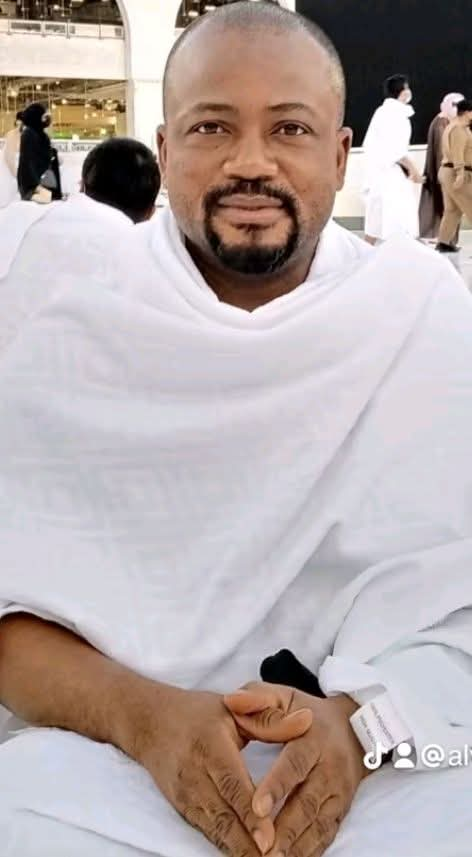
Ramadan: Al-Yusuff International Travels and Tours Boss Greets Muslims
As the holy month of Ramadan begins across the globe, the Chief Executive Officer of Al-Yusuff International Travels and Tours Limited, Dr. Abdulmajeed Oladele, has extended his heartfelt greetings to Muslims worldwide.
In his message, the respected business mogul expressed gratitude to Almighty Allah for the privilege of witnessing this year’s sacred month.
“We glorify Allah for granting us the grace and opportunity to witness this year’s month of blessings. Ramadan is a sacred and special month for all Muslims, a month greater than many others, filled with piety, mercy, and abundant blessings.
I congratulate all Muslims across the world. Let us faithfully observe the requirements of Ramadan. May Allah (SWT) grant our heart’s desires and make this period easy and rewarding for us all.”
Dr. Oladele urged Muslims to embrace the spiritual significance of Ramadan through devotion, charity, self-discipline, and prayers for peace and prosperity.
society
UKA UNVEILS THREE-TIER ATC PLATFORM AS MONARCH ANNOUNCES $10BN GOLD-BACKED MILESTONE

UKA UNVEILS THREE-TIER ATC PLATFORM AS MONARCH ANNOUNCES $10BN GOLD-BACKED MILESTONE
Emperor Nobilis Prof Solomon Winning declares global recognition of ATC ecosystem, urges citizens and partners to embrace unified digital, crypto and gold-backed financial structure
The Reigning Monarch of the United Kingdom of Atlantis (UKA), Emperor Nobilis Prof Solomon Winning, has formally announced what he described as a historic milestone in the financial evolution of the Atlantis nation and empire worldwide, the consolidation and global recognition of the ATC financial ecosystem backed by a $10 billion gold reserve.
In a voice message released from the Office of the Throne, the Monarch expressed gratitude to God and to citizens and partners across the globe for what he termed a “defining achievement” in the journey of the United Kingdom of Atlantis.
According to him, the ATC asset structure, supported by a $10 billion gold-backed certificate, has now been positioned among the world’s leading capitalisation financial platforms, ranking number 12 globally.
“We appreciate God for the milestone achieved of our 10 billion gold-backed certificate of ATC assets. We are delighted to inform our esteemed citizens, partners, viewers and friends all over the world that ATC has come to stay,” the Monarch declared.
Three Distinct but Interconnected ATC Platforms
Emperor Winning explained that the UKA Government and the Atlantis nation have officially released three integrated ATC platforms to the general public. He emphasised that while each platform serves a distinct purpose, they are structured to interact seamlessly for effective management, business transactions and global trading operations.
1.ATC Digital (Government Platform)
The first platform, known as ATC Digital, is the official government-backed digital transaction system. It is designed to facilitate digital financial operations within the UKA ecosystem and serve as the administrative and transactional backbone of the nation’s digital economy.
The Monarch described it as the formally recognised digital framework governed directly by the government under the Throne.
ATC Gold Version (Business and Trade Platform). The second platform, referred to as the ATC Gold Version, is primarily tailored for business trade, commercial exchange and transactional fluidity. It is structured to enhance business-to-business engagement, exchangeability and broader economic interaction.
“This version is mainly for business trade, business exchange and commercial transactions,” he clarified.
ATC Crown Coin (Crypto and Visitor Platform)
The third platform, known as the ATC Crown Coin, represents the Atlantis Crown Coin and is linked to what the monarch described as the Atlantean Bank Gold structure. This version operates as a crypto and digital hybrid, including visitor engagement capabilities and broader exchange functions.
(atlantisgoldbank.org
The Digital/Cryto currency Version
Atlantian Crown Gold (E-ATC) https://share.google/a7Jns9VtrMKCZ6Prk
The E-ATC purely for Trading and Exchang
Atlantean Crown (ATC) – The Future of Digital Currency https://share.google/1EhdkkDBFvBLLgfR1
The Digital version for Government
We also Have DEOS INTERNATIONAL Bank (DIB)
And ATCB)
The Monarch indicated that all three platforms are interconnected to ensure efficiency, transparency and global recognition.
“Please do not be confused. The United Kingdom of Atlantis has three major versions of ATC. Two are crypto-based, one is digital; one is also a hybrid of crypto and digital. All three interact together for effective management and effective business transactions.”
Global Recognition and Expansion Vision
Emperor Winning further asserted that the ATC ecosystem is already recognised internationally and positioned within the global financial framework. “Our platforms are presently recognised in the whole world,” he said, while encouraging existing holders of ATC assets to remain confident in the system.
He congratulated all ATC holders and reiterated the Throne’s commitment to strengthening the ecosystem’s credibility, usability and cross-platform functionality.
A Strategic Financial Architecture
Observers say the three-tier structure reflects an attempt by the United Kingdom of Atlantis to create a multi-layered financial architecture combining government-regulated digital systems, crypto-based trade platforms and gold-backed reserve credibility.
By integrating digital governance with cryptocurrency and gold certification, the UKA appears to be positioning ATC as both a sovereign-backed asset and a tradable global instrument.
As the UKA advances its financial ambitions, the monarch’s message signals a push for adoption, participation and global engagement with the ATC ecosystem.
“If you are a holder of ATC, congratulations to you from the Throne. God bless you,” the monarch concluded.
The development marks another significant chapter in the evolving digital and gold-backed finance narrative emerging from the United Kingdom of Atlantis.
-

 celebrity radar - gossips6 months ago
celebrity radar - gossips6 months agoWhy Babangida’s Hilltop Home Became Nigeria’s Political “Mecca”
-

 society6 months ago
society6 months agoPower is a Loan, Not a Possession: The Sacred Duty of Planting People
-

 news6 months ago
news6 months agoTHE APPOINTMENT OF WASIU AYINDE BY THE FEDERAL GOVERNMENT AS AN AMBASSADOR SOUNDS EMBARRASSING
-

 society5 months ago
society5 months agoReligion: Africa’s Oldest Weapon of Enslavement and the Forgotten Truth

